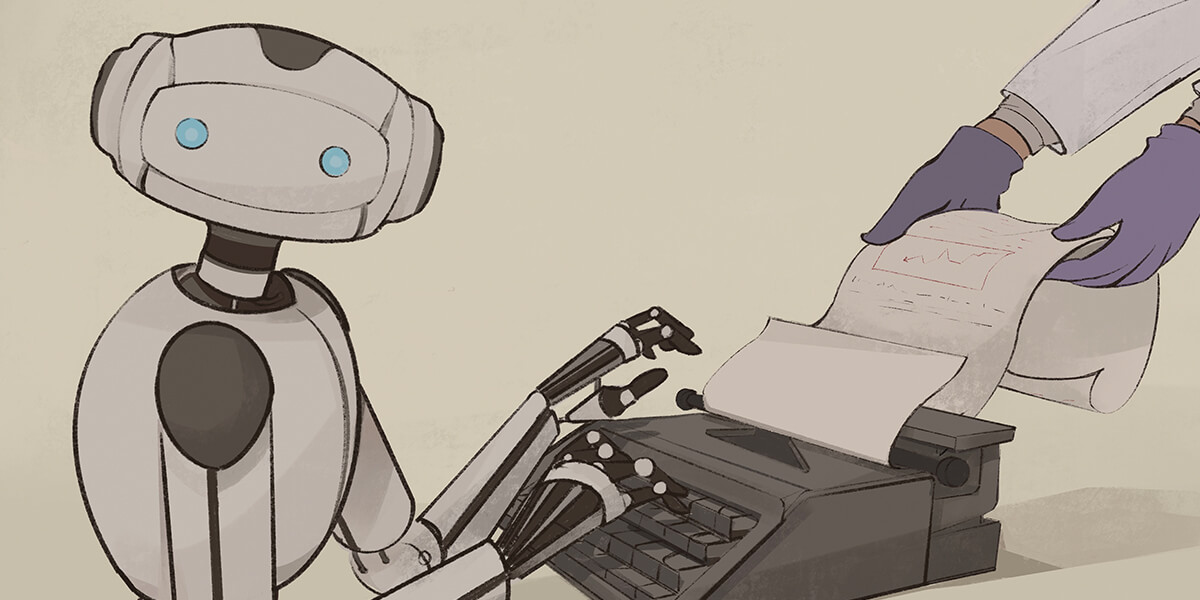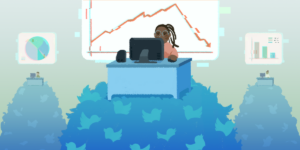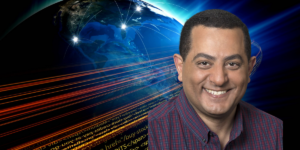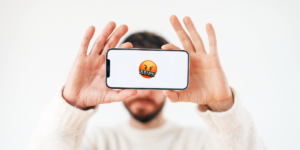
(ART/SHUTIANYI LI)
This fall, following the National Academy of Engineering (NAE) Call to Action for engineers to “crowdsource and collectively brainstorm engineering solutions for the coronavirus disease (COVID-19),” the USC Viterbi School of Engineering is offering “Viterbi vs. Pandemics!” — a new lecture series by USC Viterbi faculty to comprehensively provide an engineering-centric framework for addressing and understanding the COVID-19 pandemic.
During the 11-week, free program, students gain exposure to myriad topics, ranging from the estimation of risk and protein engineering by directed evolution to the contributions made by computer science and electrical engineering faculty in automating human safety technologies, detecting misinformation and digital contact tracing. The one- to two-hour sessions take place on Thursdays at 6 p.m.
On October 29th, Yan Liu, Philip and Cayley MacDonald Endowed Early Career Chair and associate professor of computer science, electrical and computer engineering and biomedical sciences, presented her lecture: “Misinformation Detection; Mitigation of COVID-19.”
Liu discussed how she and her team identified disinformation on social media related to COVID-19 and detected coordinated disinformation campaigns, including coordinated malicious activities promoting politically motivated conspiracies.
For those who missed it, can you briefly summarize your lecture for a general audience?
Mis/disinformation on social media has raised several concerns to public health and safety. We built techniques to identify disinformation on social media related to COVID-19 and to detect coordinated disinformation campaigns that attempt to promote and amplify the spread of disinformation. We detect such coordinated efforts based on group anomalous behaviors of accounts learned from activity traces and account interactions. In the COVID-19 discussion, we found potentially coordinated malicious activities promoting politically motivated conspiracies, such as alleged claims about the success of Hydroxychloroquine treatments.
To alleviate the risks of misinformation on Twitter related to COVID-19, we also analyze the overall nature of online discourse and quality of information shared on social media. Our analysis is updated daily between March – June, 2020 on the public dashboard – tracking misinformation claims, sentiments, trends and topics related to the pandemic on Twitter.
Why is this research important? How will it help in the fight against COVID?
Research on disinformation and social media analysis is vital during times of social distancing and increased reliance on virtual communication. Social media forms an integral part of how information is shared and consumed and the pandemic provides a fertile ground for unproven claims, rumors and conspiracies, when there are still many unknowns about the virus.
How it influences public perception of science and policies measures can have direct impacts on effectiveness of interventions to limit the spread of the virus, and on future election outcomes. Therefore, research to track disinformation and malicious efforts on social media that continually use more sophisticated deception techniques, is pertinent to ensure health of our society, democracy and social media discourse.
How would you compare your research to similar research or ideas, either in academia or industry?
While there has been much work around disinformation over the last few years, there are constantly new challenges in detection due to increased sophistication in manipulation efforts. COVID-19 itself has exacerbated the problems by introducing more uncertainty and fodder for malicious social media activities. In our research on coordinated disinformation campaigns, we leverage group anomalous behaviors learned from activity traces, instead of making assumptions on synchronized activities or assumed features of coordinated behaviors. Such assumptions limit effectiveness of earlier methods in detecting more sophisticated campaigns. Also, much of the research in this area has been time-critical to address COVID-19 conspiracies and false claims. Our analysis of the nature of online discourse provides timely response to improve awareness and make people less susceptible to misinformation on social media.
What are the next steps and/or milestones in terms of your work?
Our next research efforts are towards addressing disinformation in political discourse on Twitter related to the presidential debate and U.S. 2020 elections, and to understand the interplay between COVID-19 disinformation and efforts to manipulate election outcomes.
Can you share one story from your pandemic life? How has it impacted your work and family? What are you doing to stay sane?
I have a 1-year-old son and 7-year-old daughter. COVID-19 has drastically changed our lives: both my husband and I need to work from home and take care of our children at the same time. Sometimes my daughter would show up in Zoom calls, greeting my collaborations and students; sometimes my son would scream for attention during Zoom calls. Work-life balance is hard to achieve during this challenging time, but with colleagues, students and friends helping each other throughout, this process will be a memorable experience.
From a research perspective, what do you consider the most surprising or counter intuitive aspect of the virus or the pandemic as a whole?
It is troubling to see the persistent efforts to promote politically motivated disinformation on social media, and how the pandemic is targeted to that end. It is strange that even baseless QAnon conspiracies manage to amass many followers and supporters, and have the potential to mislead and create doubt, when they reiterate theories and leverage the ideological biases, fear and unknowns to manipulate people.
What are some words of wisdom regarding the pandemic that have meant a lot to you?
“If I cannot do great things, I can do small things in a great way.” Martin Luther King Jr.
If you could only share one slide from your talk, what would it be and why?
Disinformation and malicious promotion of disinformation through coordinated efforts is one of the most pressing problems on social media today. This figure provides an example of such activity identified by our method on Twitter data related to COVID-19.

Related papers:
COVID-19: Social Media Analysis Dashboard. https://usc-melady.github.io/COVID-19-Tweet-Analysis. Preprint: https://arxiv.org/pdf/2003.12309.pdf
Identifying Coordinated Accounts in Disinformation Campaigns
Preprint: https://arxiv.org/pdf/2008.11308.pdf
Published on November 6th, 2020
Last updated on April 8th, 2021












